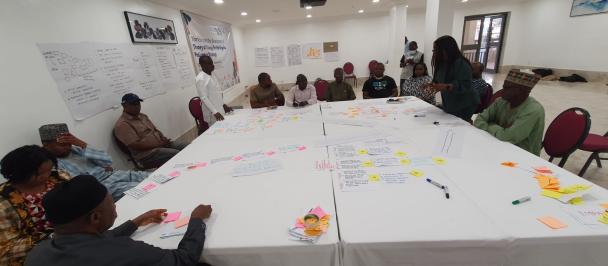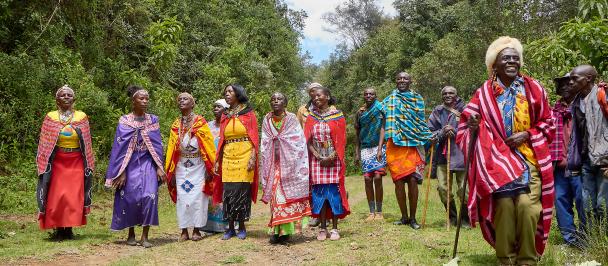Photo: UNDP
National ecosystem assessments (NEAs) provide countries with an up-to-date, comprehensive and critical synthesis of knowledge on biodiversity and ecosystem services (BES) framed around key policy questions. By bringing together diverse stakeholders and developing interdisciplinary capacities to provide policymakers with the best information available, NEAs can support BES-related policymaking, planning, and programming in the countries.
The team at the UN Environment Programme World Conservation Monitoring Centre’s (UNEP-WCMC) National Ecosystem Assessment Initiative (NEA Initiative) has been working in collaboration with UNDP’s Biodiversity and Ecosystem Services Network (BES-Net) and UNESCO to deliver trusted guidance and support to over 10 countries undertaking NEAs.
A successful series of six virtual workshops on NEA Lessons Learned concluded this July with a session dedicated to celebrating country partners’ progress on their National Ecosystem Assessments. The series began on Wednesday 14 July 2021 and aimed to:
- Present the Lessons Learned Report and the methodology of data collection used
- Facilitate sharing of lessons from country partners
- Encourage and facilitate the learning and sharing of experience between country partners undertaking the NEA, with some guidance from partner organisations
The workshop highlighted lessons learned by Azerbaijan, Bosnia and Herzegovina, Cambodia, Cameroon, Colombia, Ethiopia, Grenada and Viet Nam through their NEA processes. Each session engaged the participants in interactive activities and encouraged knowledge and experience-sharing, leading to insightful discussions around cross-cutting themes relevant to NEAs, such as stakeholder engagement, project management, communication and the inclusion of indigenous and local knowledge.
The lessons learned by Tranche I and Tranche II countries from their experience conducting an NEA included:
1. There is no ‘one-size-fits-all’ approach to managing an NEA. A clear governance structure is key to good engagement, coordination and delivery of the NEA.
2. Planning ahead is crucial. National political cycles and other major events should be considered when planning the timeline of an NEA.
3. Building ownership and ensuring relevance of the assessment needs to be done from the start. It is important to engage a wide range of stakeholders early and throughout the process; the inception workshop and the drafting of key policy questions are a good place to begin.
4. Key policy questions must be aligned to national policy priorities. They should also be revisited and realigned throughout the assessment process to ensure the relevance of the technical report and the summary for policy makers. This will go a long way towards the use of assessment findings in decision-making.
5. NEAs are important vehicles to increase country capacity at the science-policy interface. Building the capacity of the assessment team can be achieved through peer-to-peer learning and mentoring, knowledge-sharing, networking, focused support and training from project partners.
6. Strategic communication is vital to respond to the evolving needs of the assessment process and its stakeholders and to foster a shared understanding of its goals. A flexible communication strategy and plan should be developed as early as possible and update as needed.
7. Author recruitment draws upon available capacities and networks. Diversity in knowledge types, experience and perspectives will create opportunities for building capacity in interdisciplinary collaboration while contributing toward a robust assessment.
8. Coherence across the NEA chapters is fundamental. Focused working sessions can foster collaborative exchange between authors and support chapter cohesion.
9. To facilitate the work of authors, the NEA team should develop an organised and secured system for collecting, curating, storing and using data and information at the beginning of the evaluation stage. This will enable data gathering and sharing among authors involved in the assessment.
The NEA Initiative, BES-Net and the NEA Lessons Learned workshop were made possible with the financial support of the International Climate Initiative (IKI) of the Federal Ministry for the Environment, Nature Conservation and Nuclear Safety of the Federal Republic of Germany.

 Locations
Locations


